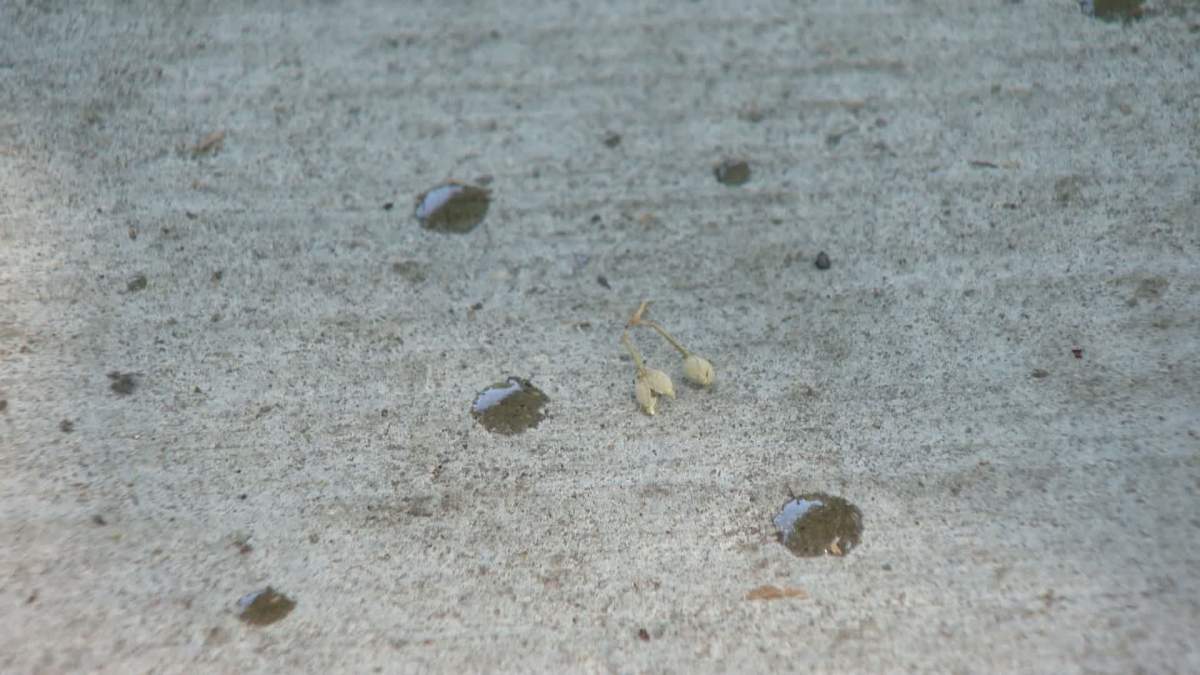It’s making Regina city streets feel like movie theatre stairs, and is causing carwash lineups like never before.

If you don’t know what “it” is, and you’re even a little bit squeamish, you may not want to read any further.
“It’s kind of like an aphid poo is the best way to put it,” says City of Regina Open Space Services Manager Russell Eirich of the syrupy substance covering sidewalks, roadways and car windows everywhere this summer.
“The aphids feed on the leaves of our elm trees. They’re kind of like a mosquito for people, only they’re sucking the juice out of the leaf, and then they create a ‘honeydew’. And all the excess honeydew isn’t getting washed out of the tree, and now it’s starting to come down itself.”
Eirich says the hot, dry summer is working in a number of ways to boost the Queen City’s aphid population this year.

Get breaking National news
Firstly, rainfall usually works to destroy some of the tiny pests before their “honeydew” excrement can cause a problem. The rain also works to wash away the honeydew before it becomes a problem/
“We’re seeing the honeydew is sticking around a lot more. The weather is both helping the aphids but also making the honeydew a lot more noticeable,” Eirich said.
The city would also typically release ladybugs to help control the aphid population, but Eirich says the city has been unable to source the helpful predator this season.
They typically buy them from suppliers in Ontario, which source them from California. One such supplier notes that “a ‘perfect storm’ created by the combination of a prolonged drought with the wildfires that made the news this past fall” likely destroyed many ladybug hibernation sites.
Eirich noted that the hot weather has helped ladybug predators like wasps breed locally.
While the honeydew definitely doesn’t pose a hazard to human health, Eirich says that if left for too long it can start to mold.
Western Autobody Manager Anne Hauck added that the honeydew could potentially pose a threat to vehicle paint, though.
“The sap excrement can burn the paint,” Hauck said, adding such an effect will be more apparent on darker vehicles and on older vehicles with more clear coat erosion.
“It’s like if egg or sap gets on your car and the sun sits on it, it can cause burn marks. It seeps into the clear coat and it burns through it.”
She said a mix of soap and warm water will easily wash off the honeydew, and that frequent vehicle waxing can add a layer of paint protection.
Erich said people will likely start to notice the honeydew less and less by the end of August.
He said at that point the aphids will take flight from their leafy summer homes, and start making their way into the eyes, noses and mouths of cyclists, runners and roller bladers making their way along city pathways.
He said the city does operate a small tree spraying program that is available on request but that like with vehicles, homeowners can combat the creatures, and their sticky juice, with soap and water.










Comments